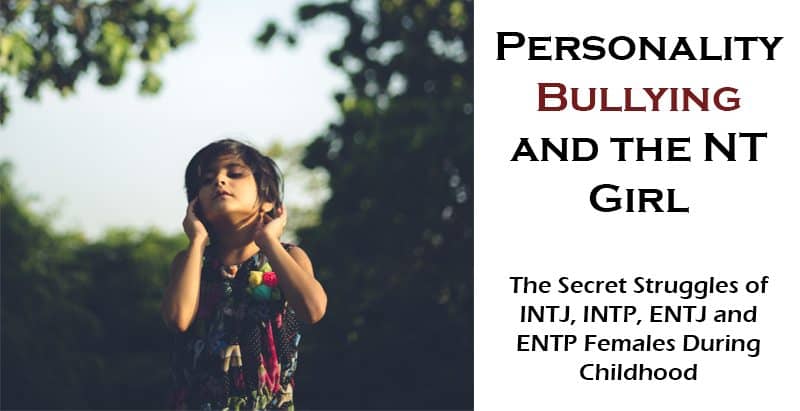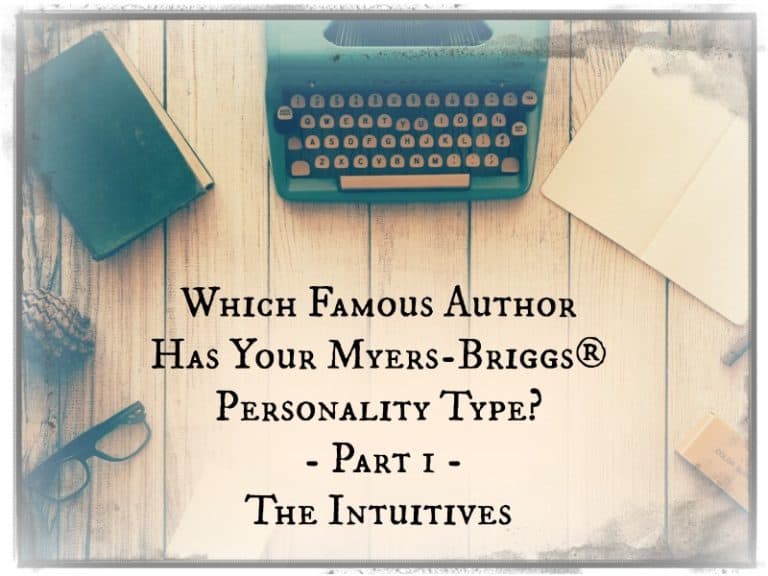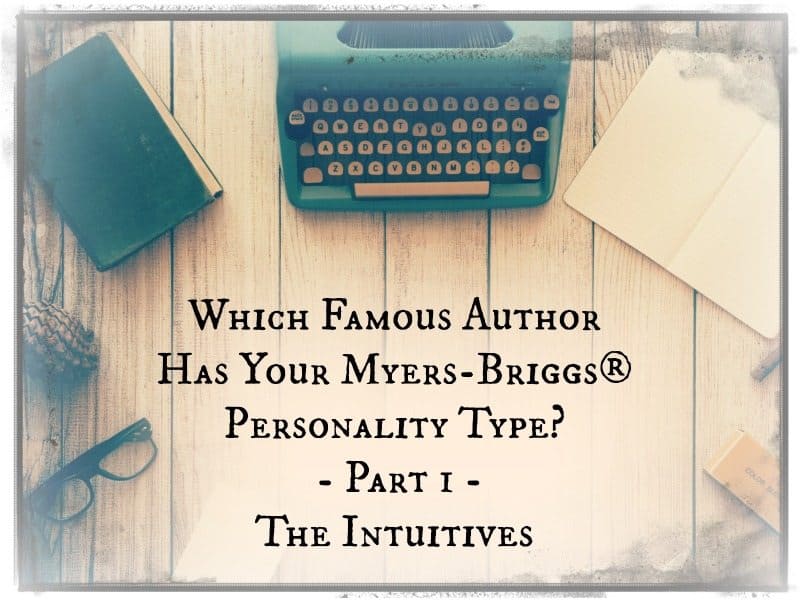Type Bullying and the NT Girl – Tips for Parents of Female INTJs, INTPS, ENTJs & ENTPs
Did you know that certain personality types experience bullying more frequently than others? Discrimination based on someone’s type is often insidious and confusing. We may not even be aware that we are bullying someone based on their type till we know more about type and how it plays out; particularly in childhood. One group of people that know a lot about type-based bullying are the INTJ, INTP, ENTJ & ENTP females. They make up only 6.1% of the female population in our country and tend to grow up feeling like the definitive “square pegs in round holes”.
Let’s Take a Look at the Numbers
The majority of females in the U.S. are Sensing Feeling (SF) types. They make up approximately 56% of the population. After that, Sensing Thinking (ST) females make up the next highest group, at 19.8% of the population. Intuitive Feeling (NF) females come in third at 18% of the female population. This means that at 6.1% of the population, Intuitive Thinking (NT) females are an extreme minority. In a group of 10 females, you’d be lucky to find even one NT!

Not sure what your personality type is? Take our new personality questionnaire here. Or you can take the official MBTI® here.
How Does This Play Out in Childhood?
Our culture has generated an “ideal” version of femininity since nearly the beginning of time. Women are expected to be nurturing, sensitive, naturally empathetic, and home-oriented. Is there anything wrong with these qualities? Absolutely not! But is there anything wrong with an independent, intellectual, forward-thinking female? No. Intuitive Thinking females often grow up in environments where they are coerced, pushed, or downright shoved into a role that is more natural to a Sensing Feeling female.
“I was raised in an ultra-conservative and traditional family where women were supposed to be the nurturers and empaths. Not only were those seen as feminine traits but it was assumed that a girl would have and be drawn to only certain things because of her sensitive and emotional nature.
This never felt like it fit me and made me feel something was wrong with me.Women’s leadership (and in my culture – education) was not encouraged or seen as necessary or appropriate.
Women’s roles in my culture were VERY specific and limited.
I tried so hard to force myself into roles that didn’t fit.
This was especially true being raised in a religion that taught that certain traits like empathy and nurturing were established in ALL women and part of their specific role. INTJs are likely to challenge religious constructs anyway.
Faith is possible for the INTJ girl – but mindless obedience is not.
I wish I could go back and tell myself as a young girl that I was seeing things others didn’t. I did have valid observations and that I was capable of leadership and authority.”
– Rebecca, an INTJ female
Rebecca’s story is one that many NT females will identify with. Intuitive Thinking characteristics are much more accepted in the male community, where being direct, bold, straightforward, and skeptical are considered more natural and true to their gender.
“Why can’t you be more like your sister?!”
Because Sensing Feeling types make up such a large majority of the female population, they have become the expected “norm” and anything outside of that is seen as not “quite right”. Sensing Feeling females will have a natural desire for harmony in their outer world; they are usually tactful, and they tend to have a natural desire to please their parents and make others happy. They are also more typically drawn to “feminine” activities; playing with dolls, playing house, dressing up as princesses, cooking, etc,..
Sensing Feeling females tend to have an innate respect for authority during childhood; and will often excel at traditional gender roles like nurturing, homemaking, and taking care of young children. Don’t get me wrong, there are variations within any temperament group, but statistically speaking, these are traits that the majority of Sensing Feeling females will excel at.
Intuitive Thinking females have a completely different set of strengths that can go unnoticed if a parent, teacher, or friend is too focused on what makes them different from the norm. NT girls are astoundingly logical, confident in their assertions, independent, and incredibly innovative thinkers. But too often they grow up hearing how they’re different from other girls their age. The repercussions of this are saddening.
“My sister naturally knew what would make people happy and how to make people feel good. She loved giving hugs and kisses, jumping into my grandparent’s laps, and telling my parents how much she cared about them. She would have all her little friends over and they’d play with Barbie dolls and paint each other’s nails. My parents gravitated towards her and often expressed out loud their concern over my more isolated, less-feminine ways. I wanted my personal space. I wanted to dissect and take things apart and figure out how they worked. I liked wearing my brother’s comfortable shorts and big t-shirts. I spoke my mind without hesitation, and I was regularly berated for being too “blunt” or argumentative. I had a hard time making friends who understood me. Why couldn’t I be as sweet and kind-hearted as my sister? Why couldn’t I think of others before I spoke? I didn’t understand what was wrong with me. I tried to stifle my natural skepticism and directness and become more like my sister, but it never felt right. I’ve struggled with depression and social anxiety my whole life, and I think a lot of it stemmed from the way other people reacted to me as a young girl.”
– Mandie, an ENTJ
The Strengths of Intuitive Thinking Types
Intuitive Thinking personality types are intellectual, logical, and constantly seeking new knowledge. They are pragmatic and excellent at problem-solving and finding innovative solutions. They are drawn to the abstract and theoretical and try to uncover hidden truths behind every subject and topic. They are naturally hesitant to accept traditional rules, and they are skeptical of every statement until it has been held up to intense scrutiny. NTs are quick to see flaws and errors in logic that other types may gloss over or ignore. They are always looking to understand the core truth of every subject, and as a result, make excellent debaters. They are analytical, curious, strategic, independent, and complex.
Can NT females be nurturing, caring, and empathetic? By all means, yes. Every personality type is going to use feeling AND thinking, but NTs are going to consider the logical approach first. When someone comes to them with a problem, they will try to step out of the situation to give an objective viewpoint. Feelers tend to “step in” to the problem to see how the situation may affect everyone involved and how people might feel. By comparison, the NTs approach may seem cold or too impersonal; particularly to feeling dominant personalities. However, their goal to help is just as noble and sincere as the feelers attempt to help.
How These Strengths are Misunderstood:
I’m a firm believer that no one personality type is better than another. Intuitive Thinkers are essential in our world; without them, we wouldn’t have Marie Curie, Isaac Newton, or even Jane Austen! We also need Sensing Feeling types, with their practical, caring nature. However, when one type is considered the ideal and the other type is considered an aberration it leads to all kinds of emotional damage in the long run.
Intuitive Thinking females are quick to see the flaws in arguments; this is why they are so great at solving problems, forming original opinions, using deductive logic, and finding innovative solutions. However, this ability to see flaws and to be skeptical is often seen as defiant, rude, or disrespectful by parents. They are often berated for asking too many questions, arguing too much, or not accepting what has been told at face value. Many NTs have to learn the hard way to stifle their natural curiosity and ability to healthily debate. You can find out more about this in my post here:
Intuitive Thinkers are not naturally in tune with the emotions of people around them; they are more in tune with logic, systems, and organizations and how things work. When there is a preconceived idea that as a female you will naturally be empathetic or emotionally sensitive and you don’t display those traits, parents, and friends can think you are cold or unfeeling.
“Looking back, I was constantly looking at women around me, trying to be more like they were, but it always felt awkward (I’m certain most of them were feelers). I felt quite alien a lot of times (still do) and have been told I come across as bossy, cold, demanding, etc. Now that I understand my personality, it not only makes sense but gives me a place to pause, knowing the other person isn’t seeing the situation as I see it and that’s ok. “
– Shana, an INTP“Don’t expect her (the NT girl) to be demonstrative. She views humans as too needy anyway, and isn’t quite sure she’s part of that species. Just let her be herself and don’t try to mold her. It’s impossible to understand what drives girls like us. Others think we are cold, uncaring, and dull. They have no idea that we’re trying to solve the world’s problems.”
– Linda, an INTJ“Young INTJs tend to put logic and idea exploration before others’ feelings. This means while they do not intend to hurt anyone’s feelings they often do without realizing it.”
– Rebecca, an INTJ
Some Tips for Parents of NT Females:

The most important thing you can do for your NT daughter is to show her that you appreciate her for who she is. Don’t try to force her into a Sensing/Feeling mold or berate her natural curiosity and directness. Praise her for her logic, her inquisitiveness, her ability to see beyond face value, and her independence.
Give your NT daughter healthy opportunities to debate and “argue” effectively. This doesn’t mean you should allow talking back and incessant arguing. It means setting up one-on-one meetings where she can discuss her concerns and questions. It could also mean signing her up for debate club or having a family debate club where she can practice arguing her case.
Model empathy and compassion. Try to understand where your NT daughter is coming from and that sometimes when she is being very direct she may not understand that it can seem tactless. NT girls care very much about people, but they aren’t naturally in tune with emotions. You can help your NT daughter by re-phrasing comments back to her so that she can more easily navigate social situations. Let her know you appreciate her honesty and straightforward behavior.
I asked all the NT women on my Facebook page what tips they would give to parents of NT girls and here are some of their ideas:
“They (NT girls) are listening, they do care, they do understand. But they’re seeing situations in a different light, and that’s ok. I’ve often had to remind people – it’s not my job on this planet to wallow, to deeply sympathize, to get caught up into the emotional details. That’s someone else’s job. My job is to give you my very best logical solution so you can move forward in a positive light. And that’s a good thing.”
– Shana, an INTP“The key is to provide a constant flow and access to educational opportunities. The NT girl will always ask “why” and “how.” Museums, art centers, hands-on activities are the best…. Don’t be surprised if she wants just the facts and only the facts. Talking for the sake of talking is pointless. She’ll ask you questions if she has use for what you know. So surround her with intellectuals and experts from ALL walks of life. She’ll be just as impressed with how the janitor knows how to use the floor wax machine as she will be with the rocket scientist who knows how to build a space ship. She’ll bring people from different walks of life together this way. She would rather listen than talk. So be content with that.”
– Linda, an INTJ“When we argue, don’t take it personally. It doesn’t mean we don’t respect you or your opinion; it just means we need to know if we can accept it as truth. We notice that other people don’t question things as much as we do, so we have to challenge things to define if we can accept them. But we argue with the people we love; we get confused when people get offended by this.”
– Sherri, an ENTP
What Are Your Thoughts?
Do you have any suggestions for NT girls or parents of NT girls? Let me know in the comments! I’d love to hear from you!
Find out more about your personality type in our eBooks, Discovering You: Unlocking the Power of Personality Type, The INFJ – Understanding the Mystic, and The INFP – Understanding the Dreamer. You can also connect with me via Facebook, Instagram, or Twitter!
Other Articles You Might Enjoy:
How You Can Be a Powerful Entrepreneur – Based On Your Personality Type
Can Childhood Trauma Impact Your Personality Type?
The Teenage Struggles of Every Myers-Briggs® Personality Type
Get Your Free eBook!

Subscribe to our newsletter and get an eBook packed with powerful parenting tips for each personality type! Enjoy 28 beautifully illustrated pages exploring the needs and strengths of all 16 personality types in childhood.

















Spot-on piece. I was lucky in that I spent my first six years in an environment that valued imagination and intelligence. If I asked a question, someone helped me find the answer, always. By the time I started running into conflict, I was confident enough that it didn’t matter. Much of that changed in late high school, because my entire support system fall apart. I spent almost two decades trying to “correct” my “flaws” before I figured out what was going on. I’d be willing to say that the adult world — from corporate America to the homeowner’s association — is every bit as harsh toward and unaccepting of NT women as the kid world.
Just to chip in, male INTJs have a similar experience at the hand of SFs.
That’s not to criticise you for taking just the female perspective. While most online content overuse that, to establish their victimhood and to berate men, NT females are such a small minority and have their own experiences, I totally appreciate it in this case.
I used to work in a technical role in the education sector, increasingly dominated by females (in all roles bar leadership roles), I no longer do that after a series of contracts that saw me isolated, excluded, the subject of viscous backbiting and demands on my time and skills by a mostly female cohort of co-workers. Thanks to them, their tendency to drive away those they dislike and their campaign to make sure everybody knows why that is best, I am disliked by waaaaay more people than I’ve ever spoken to. I no longer work with women with mediocre minds. Too dangerous and my health won’t take any more hits. Some men also behave so, but much less and they are outnumbered by the men who just shrug it off, knowing that everyone is a unique blend of strength and weakness.
Thank you for this. It makes me feel so much less alone in the world as an INTJ female.
I definitely agree with this! Thanks for this article.
INTJ. I was lucky, in that I was never given rules that were unfair or that I didn’t understand. My mom was always very logical with me. I told on MYSELF if I did something wrong! In part because I knew any punishment would be lighter. 😉 Logical. I was also given a lot of independence and time to myself. I didn’t get along well with groups of other children, always gravitating to one or two best friends. My parents didn’t worry about it. It always seemed that I got along better with adults than with kids my age. In high school, I met more friends like myself, and created a larger social group. This was a really fun time for me -one of the few where I felt a sense of “belonging.” Overall, my parents never pressured me to be different than who I was, and enjoyed intellectual discussions with me. I wish my parents had been more interested in my abilities and provided more guidance in my schooling, because I could’ve gotten ahead -I always did well, so there was “no problem,” and therefore no interest. One thing that helped me in school, especially with dealing with sub-par teachers, was how my mom taught me how to not embarrass the teacher when challenging them. I learned that a teacher can be a wonderful mentor and interesting person, but if they are not, then I could “use” them to get out of them what I could. That empowered me to ask questions and subtly guide the teacher so I could “extract” as much knowledge out of them as I could! This strategy helped me handle teachers for whom I had little respect, but towards whom I needed to show respect. Overall though, I really liked my teachers, and they really liked me.
Excellent piece! My parents definitely did a lot of this without realizing (upside of coming from STEM-oriented cultures), and I’m incredibly grateful for it. Four things I would add to parents of NT girls:
1.) Don’t get upset if your daughters’ friends seem to mostly be boys. The reality is that NT traits are ‘allowed’ – and even encouraged – among boys and male-oriented interests. A lot of my life, most or all of my friends were boys because they were the ones going out exploring or watching the same logic-oriented movies and cartoons I was. I had no interest in playing with the girls, who were staying in one spot and enacting social situations (re: playing house), and who watched boring feels-oriented shows. Let girls be friends with the kids who think like them, instead of the kids who you think they should be with. (And if their friends are mostly boys, don’t accuse your daughters of being “flirty” – that made me anxious to express any kind of friendship with anybody, because I constantly felt like the moment I made a show of friendship, it would be attacked as a romantic gesture.)
2.) Don’t get upset if your daughter plays mostly with boys’ toys. Those are usually geared towards NTs, scientific inquiry, and the media franchises also typically follow suit. Conversely, girls’ toys and media are geared towards SFs, which get very boring, very fast for NTs. I’d rather have a single Rubik’s cube than an entire doll collection. The closest thing to a doll I ever got interested in were those “makeover” dolls, and even then it was more amusement at all the potential combinations, rather than any intention to “play” with them properly. Otherwise, just let your daughter walk over to the boys’ side of the toystore and don’t let anyone make her feel bad about it (because people WILL try, as they’ve tried to with me).
3.) Libraries are your friend. The Internet, too, but safe search and other parental controls are easy to get around (no matter what parents would like to think). It’s much harder to swindle or circumvent librarians, especially experienced ones who’ve been dealing with wily children for decades (though your NT kid will figure it out eventually, a social skill that will come in handy throughout her life). Out of every children’s event the average community hosts, library events are often the most NT-oriented or NT-friendly ones – sometimes even more so than explicitly STEM-centric events!
4.) Teach your daughter social skills the same way you will one day teach them how to drive, cook, or do their taxes. Social deftness, tact, and emotional intelligence do not come naturally to us, but that doesn’t mean we can learn. I never absorbed social skills when I was expected to mimic nurturing or empathic personalities around me – but when I learned about socializing in professional and business contexts, I picked it up quickly, and then was able to extrapolate this skill into interpersonal settings. I wish I’d learned social interaction as a *skill* as a child, instead of being taught that it was a natural trait that I was supposed to naturally have (and thus something was wrong with me for not having it). If needs be, consider looking into emotional identification therapies and emotional intelligence teaching tools often used for children with autism. Your daughter may not have the neurological barriers or expression blindness of autistic children, but she may still need to learn to go through the trouble of studying someone’s face and body language, exprolating their emotions based on that evidence and circumstance, and altering their own behavior accordingly. These helped me a LOT when a stumbled across them. Again, just because it doesn’t come naturally to us doesn’t mean we can’t learn – it’s just that unlike most girls (especially SF girls), this is something we have to be *taught* because it won’t come naturally to us.
As an ENTJ girl, I finally understand why I have few friends in my school! My only male classmate is an introvert. My female classmates are feelers!
However, in my country, Malaysia, most people who wanted to be my friends are girls just because I am a girl! They don’t mind that I am blunt and direct because they think that I am honest and friendly. Luckily, one of my male friends in that school is ESXP!
As an ENTJ girl, I am typically drawn to “feminine” activities such as playing with dolls, playing house just because I had a vision when I was little. I wished that my group has 2 boys and 2 girls including me.
ENTJs have tertiary Extroverted Sensing, or Se in short. Hence, I prefer to listen to energetic songs instead of calm ones. My use of Se is the reason I dressed up as a fairy last year during Halloween. (I know how to enjoy my sensory delights fully.)
Thank you for responding! It is great to hear your experience and to understand perhaps the cultural influence of being in the US versus being in Malaysia. Thanks again for sharing your thoughts!
Very accurate article. My 2nd daughter is an INTP and she’s been a delight. I’m an ENTJ and my wife is ISTJ. We very much appreciated her intellect and encouraged it. She taught herself to read and write at 4, by copying her smart older sister (ESTJ) who was learning at 5. She was bullied at school, so she just withdrew from all social interaction by reading all the time. Her teachers loved her. She’s an electrical engineer now, as is her brother (ISTJ).
Hmmm… Reading this has led me to an interesting conclusion. Is the reason most toys and shows are aimed at SF girls because it’s the easiest way to make profit according to the capitalist system and because focus groups usually “focus” on the majority? It definitely makes sense. By the way, Susan, what percentages of men are what middle two letters in the USA as well?
Hey Susan! Thank you for writing this warm, heart felt post! ENTP female here. My experience was interesting. Being raised in an achievement oriented family and school, my NT traits were valued in such an environment. ENTPs enjoy networking a lot with a wide variety of people and Ne helps you to see the perspective of people from a very different background from yourself.
As an INFJ you feel it is important to teach kids kindness and empathy, which is extremely commendable. More parents should be like you! Are you living in a more traditional town where women and men have strict gender roles?
Tomboyish behaviour is accepted if you play it right. I had sporty ESTP and ENFP female friends who were straightforward and didnt fit the conventional mould of femininity yet they were socially dominant and were admired by guys. Furthermore, the leadership and overachieving nature of an ENTJ Enneagram 3w2 person is very admired and seen as the “model student” who could make it into Ivy League and did her family proud. As a result, I spent my childhood learning to be organized like an ENTJ.
However, INTx females might be misunderstood because they are aloof and not in touch with the environment. Their gut instinct is also underdeveloped, besides their feelings. INTx are not energized by socializing. INTx may find STEM fields a natural fit for them.
So:
1. Encourage and challenge them to mix with older people who are better than them. Eg you know a scientist or doctor. Introduce that to her. This is a valuable skill in networking in the future
2. Teach the kid psychology and MBTI. Use the logical approach! Teach her to type people and to tailor her interaction with them. Use this opportunity to teach her about diversity issues and being kind to people from all walks of life.
3. If the INTx child is into sports, encourage that as it is a great way for NT kids to express their competitiveness. Encourage extracurricular participation, like a research project, math olympiad, learning how to code since young, mentoring under a tech startup etc. That would be great for their resume and help them get a STEM career.
4. NT kids can learn to be diplomatic too. In my current job, I am working with a few.
5. Environment matters!!! Bullying says a lot about the bullies and the dominant culture of the place than the bullied kids. For example, even a common type like a kind ISFJ can be in an environment full of immature ESFPs and ESTPs which bully/gossip about her. Nasty isn’t it…
Thank you for reading!
Thank you for giving me your thoughts and feedback! I think that some of your tips are very helpful, and I’m putting them down in my notes. I’m glad that you were raised in a family that nurtured your strengths. I don’t think that necessarily every ENTP/INTP/ENTJ/INTJ will experience bullying, but it seems to be a common theme among interactions I’ve had either in person or online when talking to NT females. I think perhaps it is more common (at least from what I’ve seen via feedback) with INTx types than ENTx types, but I’ve heard of it happening with both. I have also seen it happen in certain more traditional/old-fashioned environments where the SF female is considered the “ideal”. I do believe that any personality type can be bullied based on their type, I just think that it may be a particularly common theme for NT females since they are such a minority percentage-wise.
I really enjoyed this article, but I think I would’ve liked it more if it had expanded into the bullying NT types experienced as children from other children. This article seemed to especially emphasize adult bullies. I will say that, for what the emphasis was on, I found this article quite accurate to my personal story as an oldest daughter INTP raised in a religious, authoritarian type of household. However, my experience as an NT child seems quite uncommon, and I would’ve loved to hear that perspective explored more. I will say, personally, I was an outcast as early as kindergarten, and that fact has remained true into my adulthood. Maybe something to consider for a future article.
INTJ. I didn’t mention it in my previous comment, but as a child, I experienced extensive bullying from my classmates. It was always brushed aside by my family, and I had to handle it on my own. It hurt my feelings a lot when I was little, because I really wanted to do the fun things the other kids were doing. Later though, I learned to evaluate the person it was coming from -then I realized that I didn’t care what *those* particular kids thought! I really, really didn’t care what they thought, and just fought to protect myself from disruption and physical harm. Fortunately, there wasn’t much physical bullying, and I was always quicker to respond physically than verbally -so I won the fights, what few there were. My brains became my source of confidence, and I was lucky that I was athletic as well. There was still harassment in high school, freshmen year, but like I said before, I gained a bigger social group and any social problems went away. I think it is hard for INTJ’s like myself to defend themselves “in the moment.” It helped to have a plan beforehand, or a verbal comeback ready. Actually, I would say that all girls, but perhaps especially for INTx girls, they need specific things they can do to deal with sexual harassment or other unwanted sexual advances. “Protect yourself” is not enough. Thinking about a strategy beforehand with a daughter, about how to read a situation, and how to deal with it, could be very very helpful. I certainly was caught “unawares” in a few situations and needed help.
Very good read.
On the flip side, I hadn’t realized INTJ women were so rare as two of my sisters are INTJ, and one of my female cousins, AND my mom. I am an ENFP so I was often made to feel as if i were doing things wrong. You know, like not having a plan, they ALWAYS have a plan. And this made me feel inferior at times because i struggled making a plan i could stick to.
So situations like that made me struggle with my identity. To the point that i was convinced that they were just smarter than me and i wasn’t every going to be anything as great as they were.
Also i often felt isolated because, as INTJ’s they weren’t really into feelings as much as i was. So i would tred carefully around their feelings, only to have them, most likely by accident, trample my feelings and ideas, which to a budding ENFP was devastating.
I could go on…
But i do find it strange that I have such a concentration of INTJ women in my life when they are considered so rare.
As a child, I was often told by my prima donna mother (literally a Juilliard-trained coloratura soprano) that I was cold and uncaring. I just don’t wear my emotions on my sleeve, and when I am around others who are hysterical flibbertijibbets — ironically, a word my mother used to use — I can feel my face becoming mask-like. I was like that even as a child. My mother used to try and actually goad me into emotion and compounded punishments when I wouldn’t get upset or rattled. My older sister was on board with her, and there were times my sister’s friends would make fun of me and punch me up as she held my books. Childhood pretty much sucked. And for some reason I could rarely come to my own defense. I would be inwardly outraged at the bullying of others, but I couldn’t speak up for myself. I never told anyone because my sister was the outgoing flower who could do no wrong.
I would say the best gift a parent could give any child, but especially an introvert and the INTJ, is the gift of time and listening without judgments. INTJ’s prefer to work things through and solve their own problems.
Don’t make fun of what you consider “strange” behavior from and INTJ child. My mother would say that I was the kid in kindergarten who would be off to one side by myself, staring up into the sky, walking backwards, examining bugs, AND she would scold me to be more like my sister and not be antisocial when we got home. (And all the while I thought I had been having fun.)
Get the INTJ child to go outside and do something. They need physical activity or they get stuck in their own head. Of course, they should read, but that shouldn’t be their only hobby!
(I have tested INTP when I’ve been depressed and then I know I need to snap-out-of-it and getting out helps.)
Read up on the INTJ personality type and see if you can coax them out of their comfort zone to be more compassionate, fun loving, and adventurous. DON’T BERATE THEM or make fun of them when they resist or seem to barely participate. (As a kid, my mother would say, “Go to the party. I bet once you get there you’ll be glad you went and will have a good time.”
I remember coming home from one such party and she asked me, “You had fun, right?” “No.”)
Show them lots of love. They may not be very demonstrative, but INTJ kids crave love the same as other kids. They may want a chat, some quiet company, and a pat on the shoulder for a job well done, but they also definitely need to know you love them. Don’t be offended when they don’t jump all over you with hugs and kisses. I’m not saying it can’t happen, but it isn’t the hallmark of an INTJ kid. My mom (I didn’t realize I had so many mother issues until writing this!) would give me an annual hug at Christmas whether she thought I wanted it or not.
Oh, and A LOT of INTJ’s grow up to feel like they have the BEST Myers-Briggs personality that exists and that’s crap. There is so much typing with INTJ’s and the Mastermind, Gandalf, Moriarity, blah, blah, that feeds into the over-inflated sense of self that the INTJ is already stuck on in their own head — I myself get annoyed reading posts by self-indulgent INTJ’s who are just in love with themselves and their personality. Kindly and patiently teach them to respect and be kind to others. Negotiate with them on which type of charitable acts to choose to learn compassion for the less fortunate, too.
Along this tack, the INTJ’s greatest strength can be their greatest weakness: Thinking is not all a human is made of. Feelings are so important. I know they are. They must be. : ) There have been times when it has taken me years to process and deal with grief because I just never learned how to and thinking a l w a y s has trumped feeling for me. I don’t have any clues on how to remedy this because I have never healed myself.
The INTJ can be invaluable to a group and they need to learn where they can be an asset. Getting along with others and mutual respect is key. (For example, if I speak at all, I am usually the last person to speak at a meeting. I may seem uninvolved, but I am earnestly listening. If all bases are covered, I’m good with saying nothing. Usually, I speak at the end on topics or points that have been missed.)
Best of luck gathering your data! It sounds like a fun learning adventure!!
So true. My biological mom and favorite aunt always worried that there was something wrong with me because I didn’t express my emotions enough. My foster mom was always mad at me for “talking back” when I was only stating my opinion or asking a question.
Ugh. I am an INFJ. My youngest is an ENTJ. In some ways, we get along so well, but I have to admit she drives me nuts sometimes. (I am sure I drive her nuts, too.) Nine times out of ten, it isn’t that I don’t appreciate that she is THINKING of these things to argue with me about, but it’s just that I don’t have the energy to have the conversation. I just want to hang out in silence with her and disappear into my thoughts. These tips are helpful because I sometimes struggle with expressing this to her in an age appropriate way and verbally. If only everyone communicared through written word, I could eloquently explain!
Thank you!
I do not want to downplay those few nt females But not all who seem to be nts are like . Before recently I have taken the official test and came out entp , but it was not true my true type was clouded by mental Inness . After getting the proper help and improving . And just being tested again to be sure , because their was a major shift in my thinking. I am a true enfp. I mean with this not everyone how how appears nt is.
I am an SJ with a NT daughter. I am working hard to give her the room she needs to be who she is, but it is really taxing sometimes. 🙂 I appreciated the tips here and especially the suggestions in the article about giving her room to learn as much as possible. She is so interested in the how and why of things!
–
Here’s my tip to help those with NT children who like to debate: We play a game called “real or not real.” We debate things like unicorns, lochness monster, bigfoot, and UFOs. We play this game anywhere, especially on vacation over lunch, and we each present “evidence” for our opinion. Is it real or not real?
–
After reading this blog post now I know that “real or not real” is a big help to my daughter and her personality. It’s nice to know we did at least one thing right! 🙂
Dang, i feel so connected and seen. Especially, with what Linda said in the post about NT ladies will question the why and how. And, I realize I was like that especially with my dad when we were building a shed and i would help. I would want to know the dynamics and how a shed was built. And, I would love when my family would all sit together and talk.
I am not a parent myself, but I (INTJ daughter of SJ and NT parents) am strangely relieved to know that I am not the only one who unintentionally irritates both of my parents with how I show up.
I do not try to be disrespectful or mean to them, despite how they may feel; I merely have the hardest time reading the room, knowing my exact stress and tiredness levels in the moments that I need to know them, agreeing with parents simply because they are parents (as if having at least one child turns a person into a jack-of-all-trades and the ultimate standard for correct thought), knowing when to say things, and successfully being tactful.
My parents tried, but I think they expected a unicorn and received a dragon, figuratively speaking.
As a 20-year-old male INFP from Romania, it would be strange to understand this being an F, but I do, they are simply very helpful NTs need help and even if they may seem colder, they are extremely logical, helpful and intellectual and they really care like any healthy personality type, I wish all types were no longer rare so they could be better understood equally.